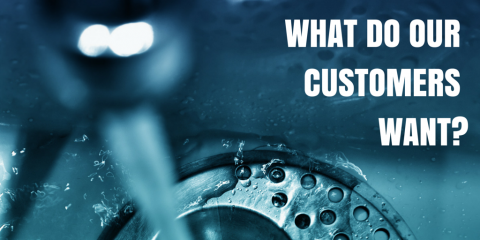
Chris Loughlin, CEO of South West Water was the guest of WSAA at Ozwater'15. With an intriguing and heavy hitting leadership background including time as a diplomat in Tokyo, Chris was the consummate professional giving his first presentation just hours after stepping off the plane straight from Exeter.
We were kind in response – he was mostly spared of ribbing over the cricket world cup. But I digress.
Why Chris and why South West Water? As Chris explained South West Water back in the 80s had the unenviable record of discharging raw sewage to the lovely beaches of the south west in England, rendering many of them unswimmable and probably not enjoyable full stop.
Chris and his management team have turned the organisation around: they recently went through the OFWAT PR14 (the most recent price determination) with 'enhanced' status meaning that their engagement with customers around their business plan was top notch.
And that’s exactly why we wanted to have Chris here for an extended period - what could we learn in Australia about that engagement process?
Let’s take a couple of steps back here. For Ozwater'15 in Adelaide, the AWA also invited Cathryn Ross, head of OFWAT, the UK water industry regulator to talk about the fundamental principles around the PR14 process and her presentations were highly valuable.
One of the key take aways from both Cathryn and Chris was about the background to the privatisation process in the UK way back in the late 80s and early 90s. That issue is certainly exciting the minds of some here in Australia.
Both explained very succinctly that in the days of the Thatcher government, with a highly stressed balance sheet, having joined the EU and now facing requirements to upgrade the quality of beach water quality, there was no choice but to raise those capital needs from the private sector. What's the burning platform here they asked?
There were a few issues that really stood out for me listening to our UK colleagues. It became crystal clear that customers had been given primacy in the recent price determination in the UK.
This is a great thing, a step change. Transparency is paramount. The UK Government issues a ‘guidance’ document to OFWAT, but that’s open for everyone to see.
We have much to learn here in Australia but there are many examples how utilities like Yarra Valley Water have pushed hard to ensure their customer are engaged in developing the outcomes they would like their utility to achieve.
Chris also made the case that their customer engagement program was far more that imparting knowledge to their customers. If there was an issue their customers wanted more information on, or didn't quite understand, South West Water would come back time and time again, in 'multi-waves', to establish the outcome their customers were looking for.
Customer challenge groups were arranged to continually review the business plan as it was developed. This was a genuine participatory process and sets an example for Australian utilities to consider for the future.
South West Water also introduced ‘WaterShare’ an innovative gain share/pain share initiative. Any gains against the business plan delivered by South West Water would be shared with their customers to be overseen by an independent panel. This just cements in that key relationship of the utility and the customer.
Competition is the answer… now what was the question? Both our UK colleagues presented interesting views on competition which will be introduced for non-residential customers from 2017. With such slim margins it was hard to see what the value add could be, although for the Tescos of the UK, dealing with a single water retailer would certainly be advantageous.
WSAA has started a project that will break down the urban water value chain, which will help us here in Australia guide market structures of the future.
Incentives for utilities to outperform their respective business plans are also a feature of the new regulatory structure. Outcome Delivery Incentives (ODIs) have been set up with financial rewards and penalties. Rewards may include improving bathing water quality and a penalty would include sewer flooding and odour complaints.
Being able to achieve these rewards is capped off by a TOTEX rather than a split CAPEX and OPEX basis. This model allows utilities to innovate through their capital program or through operations knowing all the while they have clear customer outcomes to deliver.
Ultimately the UK model has moved the bar up a few notches. A model with very little political interference, a model that encourages rewards through innovation, and a model absolutely dependent on meeting customers outcomes. Can we have some of that please
